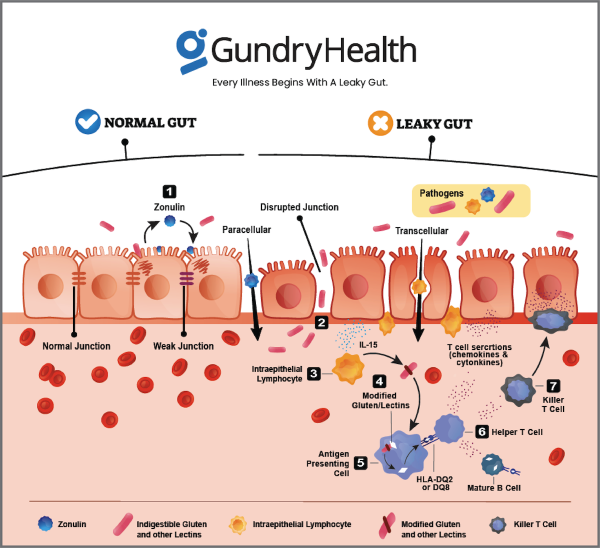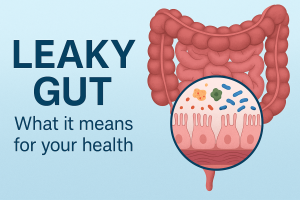Unlocking a Healthier You: A Guide to Making Smart Food Choices
Embarking on a journey toward healthier eating can be a transformative step towards a better, more vibrant version of yourself. At Gundry Health, we understand that making the right food choices is often easier said than done. However, armed with knowledge and a commitment to your well-being, you can start making choices that nourish your body and support optimal health. Let’s explore the essentials of a healthy diet, the significance of whole foods, and practical tips for making smart food choices.
Understanding a Healthy Diet: Embracing Whole Foods
What is a Healthy Diet? What are Whole Foods?
Embarking on a healthy eating journey begins with understanding the fundamentals of a nourishing diet. At its core, a healthy diet involves making choices that fuel your body with essential nutrients while avoiding processed and potentially harmful substances.
Whole foods play a pivotal role in this journey. These are unprocessed, unrefined foods that come directly from nature. Think lectin-free vegetables, Gundry-approved nuts, lean meats, wild-caught fish, and pasture-raised omega-3 eggs. By opting for whole foods, you ensure that your body receives pure, unadulterated nutrition without added chemicals or unnecessary processing.
Here’s a snapshot of foundational foods for your healthy diet:
- Leafy greens
- Cruciferous vegetables
- Avocados
- Extra-virgin olive oil
- Omega-3 eggs
- Millet or sorghum (lectin-free grains)
- Wild-caught fish
- Gundry-approved nuts
Making healthier food choices doesn’t mean depriving yourself. Instead, it involves incorporating nutrient-dense, whole foods into your routine.
Healthy Eating and Avoiding Lectins
Priority: Steering Clear of Lectins
When it comes to eliminating certain foods from your diet, lectins take center stage. Lectins are plant proteins that, when not properly cooked, can pose risks to your gastrointestinal health. If your gut wall is compromised, lectins may breach protective barriers, causing damage to your gut lining.
To promote a resilient gut, limit your lectin intake. Choose a well-balanced, nutritious diet while being mindful of the lectin content in foods like grains and legumes. Your gut, with its delicate mucosal barrier, deserves the utmost protection.
Making Healthy Food Choices: Give Sugar the Boot
Sugar: A Major Offender
Much like lectins, sugar is a significant contributor to weight gain and various health issues. Consuming excess sugar can trigger an immune response, leading to inflammation throughout the body. This inflammation is exacerbated by disruptions in cytokine production, essential proteins that regulate your body’s response to swelling.
To protect your health, it’s best to minimize sugar intake. This includes limiting high-sugar fruits. Opt for berries in moderation or indulge in a square of 72% (or higher) dark chocolate when a sweet craving strikes.
Setting Yourself Up for Success
Educate Yourself and Seek Support
Starting on the path to a healthier lifestyle requires education and support. Gradually transition to a healthier diet by making informed choices. Consult your doctor or nutritionist to tailor your dietary changes to your unique health profile. They can provide personalized advice, keeping you accountable and guiding you toward preventative food consumption.
Smart Habits and Moderation
Success in adopting a healthier lifestyle lies in smart habits and moderation. You don’t have to push yourself to extremes. A half-hour walk or bike ride can suffice for exercise. If you enjoy alcohol, savor a single glass of red wine in the evenings. Engage friends and family to join you in cooking healthy meals or exercising, fostering a supportive community.
Tips for Making the Switch to a Healthy Diet
- Gradual Changes: Don’t cut everything out at once. Make gradual changes to avoid feeling deprived.
- Consult Your Doctor: Discuss your diet changes with your healthcare professional for personalized advice and accountability.
- Enlist Support: Inspire friends and family to join you on your journey to a healthier lifestyle.
FAQs:
Q: What Does A Healthy, Balanced Diet Look Like?
A: A healthy, balanced diet includes lectin-free vegetables, lean wild-caught proteins, and good fibers and fats. For detailed guidance, check Dr. Gundry’s Yes/No List.
Q: How To Make Vegetables Tasty?
A: Enhance the flavor of fresh vegetables with extra-virgin olive oil, roasting, seasoning, and a splash of citrus for brightness.
Embark on your journey to a healthier you by making informed, conscious food choices. At Gundry Health, we offer a range of delicious, compliant foods to support your lifestyle. Check out our compliant options that not only align with the Gundry-approved diet but also tantalize your taste buds.
Sources:
- PMC – Biochemical and Clinical Perspectives of Lectins: A Review
- PMC – Dietary lectins as disease causing toxicants
- PMC – The importance of mucosal barrier maintenance in gut health
- PubMed – Sugar and Immune Responses: Where Metabolism Meets Immunity
- PMC – Role of sugars in human neutrophilic phagocytosis







